From
Dr. Werner Prell -
Our competence is printing in Roto and Flexo.
? The existing roto presses are not fit for small lots or order quantities.
? World class standards are the demand to pharma packaging products. They can never be achieved in Flexo print.
? Development (market demands) -> the lot quantities are decreasing. (We gathered experience with small batches in the pharma industry ranging from 500m2 to 5000 m2 Flexo prints for years in our production sites in Germany and Belgium).
? Demands to Constantia Hueck Folien:
- High efficiency for small order quantities
- Production costs meeting market prices
- Optimized waste rates
- Short setup times and short ways within a self contained production – In-Line
printing (Roto) and laminating / heatseal coating.
? The Challenge:
- Sleeve technology in Roto (production on site)
- Sleeve technology in Flexo familiar – no experience in Roto
- Handling und storing sleeves
- Defining printing widths
- Back up for Fa. Constantia Patz with the product groups blister foil and coldform
(contact lens-, security- and high-temperature blister foils)
- Use of existing Roto cylinder bases
- Storage systems and cost-benefit analysis
? Decision parameters Pro/Con:
- Introduce sleeve systems (max. printing width)
- Storage systems – cylinder bases/sleeves
- Produce cylinders in-house or externally
- Handling by operators etc.
Extent: 23 pages
, Size: 3.72 mB, Language:

german
 german
german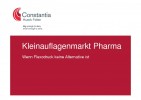
 german
german
 german
german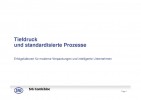
 german
german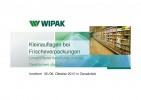
 german
german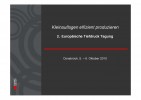
 german
german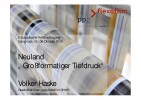
 german
german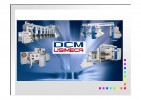
 german
german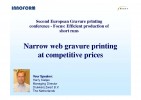
 german
german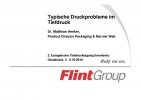
 german
german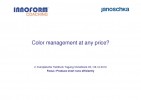
 german
german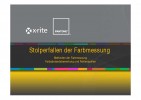
 german
german german
german